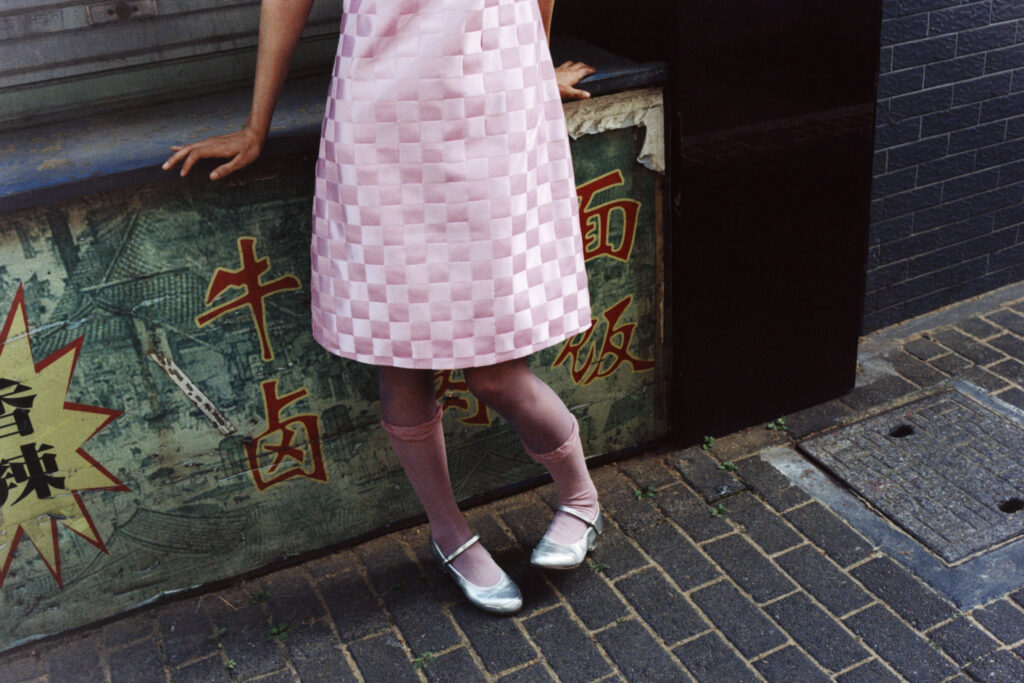

Cousins Mengyu and Orange were born in Wenzhou, a port and industrial city nestled in the mountains of China’s Zhejiang province. Renowned for its dialect — so distinct that even residents of neighboring towns struggle to understand it — Wenzhou’s geographical isolation has shaped its culture and identity. It’s a city that has long fed dreams of elsewhere and big ambitions. When China initiated economic reforms in 1978, Wenzhou became the first city to establish individual and private enterprises. Over the past three centuries, its residents have emigrated in significant numbers to foreign cities, establishing restaurants, coffee shops, and retail stores.
According to The Economist,
“Among Europe’s 1.7m China-born immigrants, people with links to just one city — Wenzhou — form the majority. The Wenzhounese are famed in China for leaving their home town to do business elsewhere, and excelling at it… Turn up in France, or Italy or Spain and there would be people ready to help.”
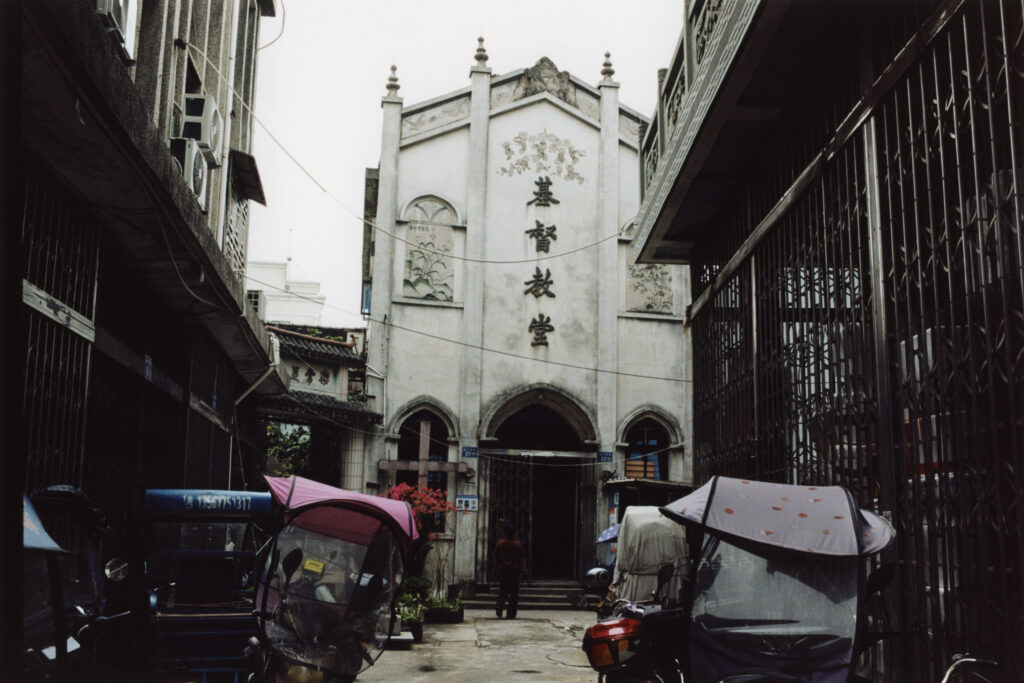
After kindergarten, Mengyu and her family relocated, first to Hangzhou and then to Germany when she was fifteen. Orange stayed behind, dreaming of following her cousin’s footsteps. She dropped out of high school with the goal of pursuing a life overseas. But without her parents’ support and a high school diploma, her hopes were cut short. Deemed a poor marriage prospect, Orange was pressured into marrying young and divorced only a year later.
Despite living half a world apart, Mengyu has taken to photographing her cousin and their shared city during her visits home. In her series The Filial Daughter 孝女, Mengyu navigates the obligations Chinese women are expected to uphold for their families and how that charge has shaped modern China. At once observant and personal, Mengyu’s photographs reflect the tension between the city’s rapid modernization and the enduring grip of family and gender norms. The series is a conversation between the cousins — of what could have been and what still might be.
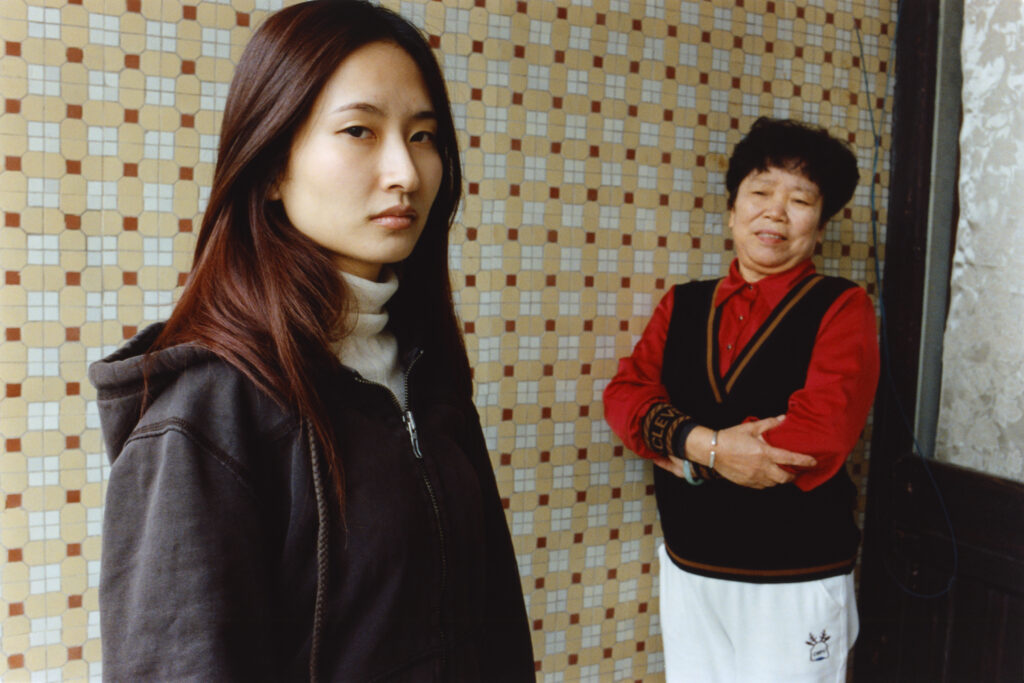
Through the photographs, Orange finds a sense of agency: “Each photo on its own shows a different side of me. If you put all of Mengyu’s photos together, they could tell a story or express something about society and its customs.”
Mengyu, too, wrestles with her connection to her hometown. “What would life have been like if I’d never left? I’ve lived in so many places that felt like home, but Wenzhou carries a weight that none of the others do. It’s hard to put into words, but each time I go back, I’m reminded of how much this place is a part of me, even when I tried to resist it.”
Below, FAR-NEAR delves into themes of sisterhood, resilience and — ultimately — hope, through the lens of The Filial Daughter 孝女.
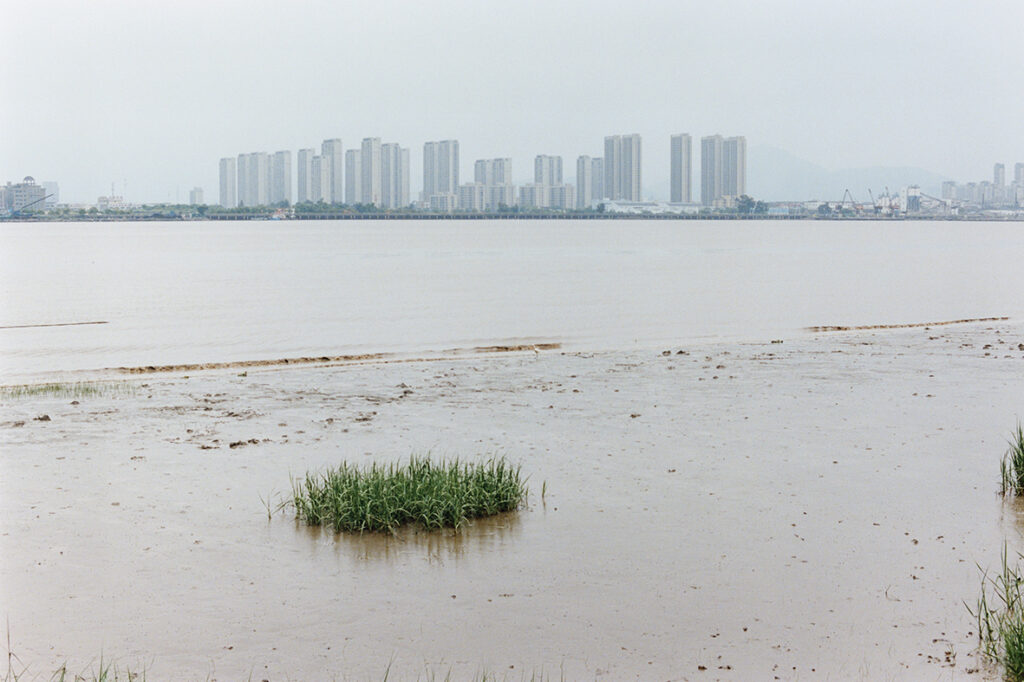
Lulu Yao Gioiello Can you describe what it was like growing up in Wenzhou?
Orange I stayed in Wenzhou until third grade, and my parents weren’t around at that time. It was my grandma who would take me to and from school. I think my childhood was actually quite happy, except for the pressure from my parents to always strive to be the best in class.
Mengyu Zhou I left for Hangzhou after finishing kindergarten, so my time in Wenzhou was only those early childhood years. Like Orange, though, we both grew up in a boarding school environment from a young age, which really gave us a sense of independence early on. That feeling of needing to rely on yourself, even as a child, is something we both share.
Orange We had to rely entirely on ourselves. Of course, I missed my parents a lot, and I would often hide under my blanket. I cried often, had nightmares, woke up in the middle of the night and then couldn’t fall back asleep.
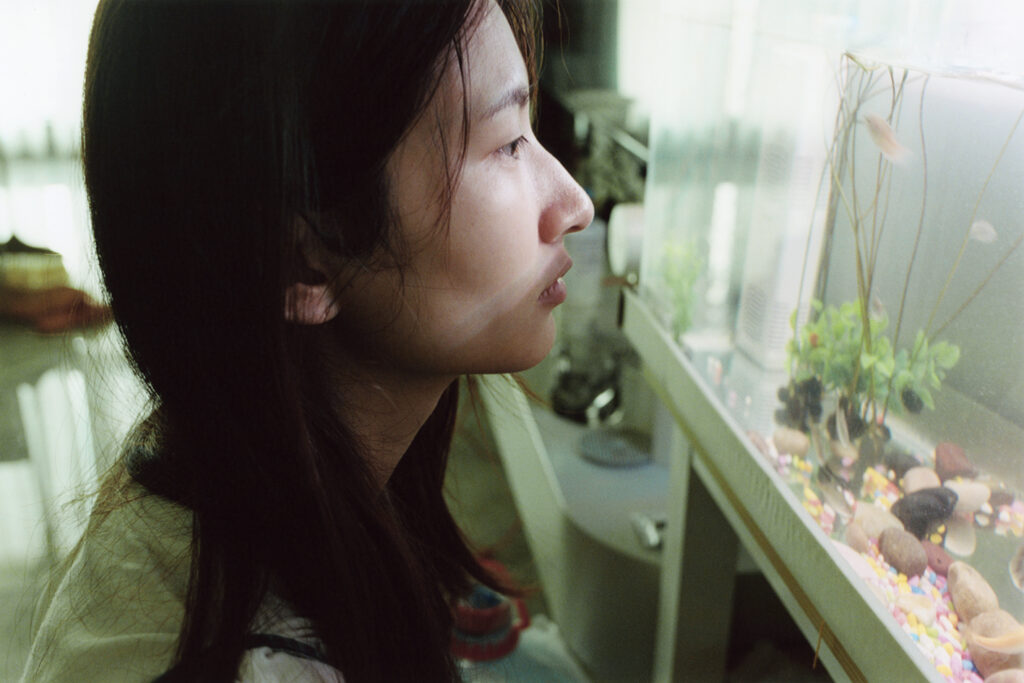
“In Wenzhou, family and family duty are deeply intertwined, and for young women, it’s not just about your personal goals; it’s about how you balance them with the expectations placed on you by your family and society. It’s a constant juggling act.”

Lulu Mengyu, how did you decide on the title of the series?
Mengyu The title came to me quite naturally. In Wenzhou, family and family duty are deeply intertwined, and for young women, it’s not just about your personal goals; it’s about how you balance them with the expectations placed on you by your family and society. It’s a constant juggling act.
Orange Family and family responsibility are expected of all women, not just because society or men expect it. Often the older women who’ve experienced hardship also place this expectation on younger women. Nowadays, I think filial piety should be based on preserving yourself first. If you lose yourself in the process of being filial, it becomes blind obedience. However, our generation may subconsciously push ourselves toward that ideal, so we’re always caught in this conflict between pursuing our own self and being filial to our parents, or doing as they say.
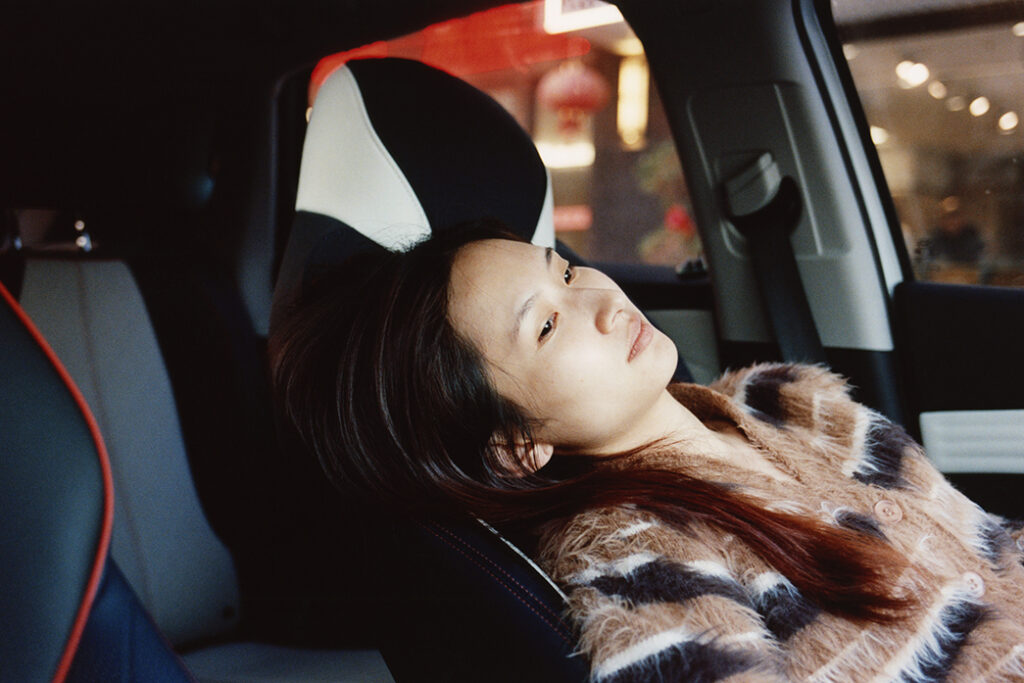
Lulu I was recently reading the book Chinese Espresso by Grazia Ting Deng, in which the author explores the phenomenon of Chinese immigrants taking over and preserving the traditional espresso cafes, something that Italians hold very dear to their culture. Mengyu, I thought of you when she mentioned that the majority of Chinese Italians come from Wenzhou. I’m curious: does this reflect your experience in Europe? And in regards to leaving China to move abroad, what is the dynamic between those that leave and those that stay?
Mengyu When I first visited Paris, I was surprised to see how many Wenzhou restaurants there were — like a piece of home in a foreign land. There are not as many Wenzhounese in Germany, so my experience feels different. But there’s a common thread: wherever they go, they carry this deep sense of community, family and work ethic with them.

Lulu Sometimes, when we’ve been gone from home for a long time it can feel surreal to enter back into that place and that world, especially if there is somewhere else we now call home. Do you feel nostalgic when you go back to visit Orange?
Mengyu Absolutely, every visit brings up this flood of nostalgia. I always find myself thinking, “What would life have been like if I’d never left?” I’ve lived in so many places that felt like home, but Wenzhou carries a weight that none of the others do. It’s hard to put into words, but each time I go back, I’m reminded of how much this place is a part of me, even when I tried to resist it. Recently, I’ve felt more at peace with that and more willing to embrace my roots.
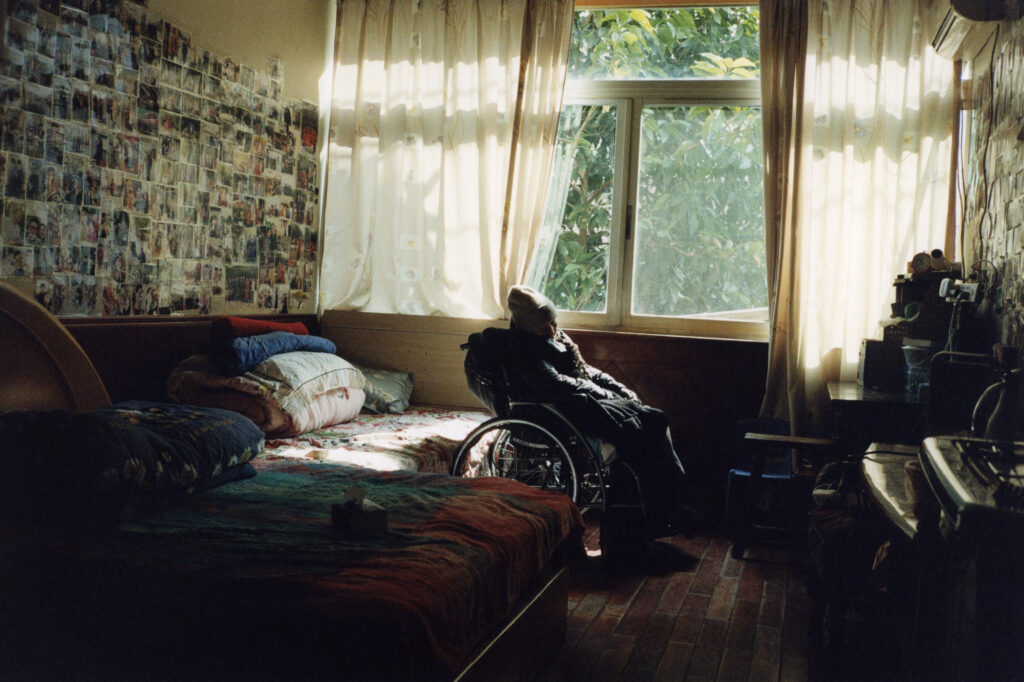
Lulu On the flip side, Orange, dropping out of high school and applying to move abroad without your parents’ consent sounds like a very brave thing to do for anyone, let alone a young Chinese woman. What was your life like when they found out you did that? What were you hoping for by going abroad? Why didn’t your parents want you to leave?
Orange My parents did agree to me dropping out in the end, but at first, they didn’t approve of my decision. I wasn’t particularly brave at the time; I just had a bit of courage and made the decision hastily without enough research. I dropped out impulsively, and my parents, who were young and inexperienced, didn’t know how to balance school with the idea of going abroad. I was drawn to the environment in foreign schools where there wasn’t the same pressure as in China’s exam-focused education system, and I felt I could better develop myself. My parents didn’t want me to leave, probably because they thought I was still small and vulnerable, afraid I might be bullied. Also, they didn’t want me to be so far away from home when life in China was pretty good.
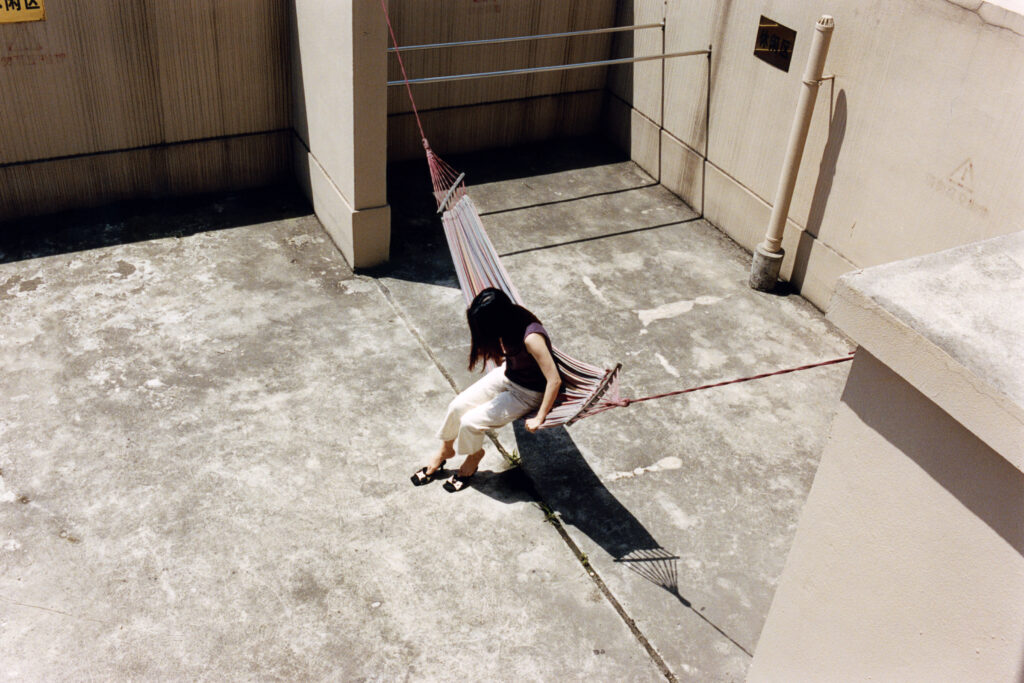
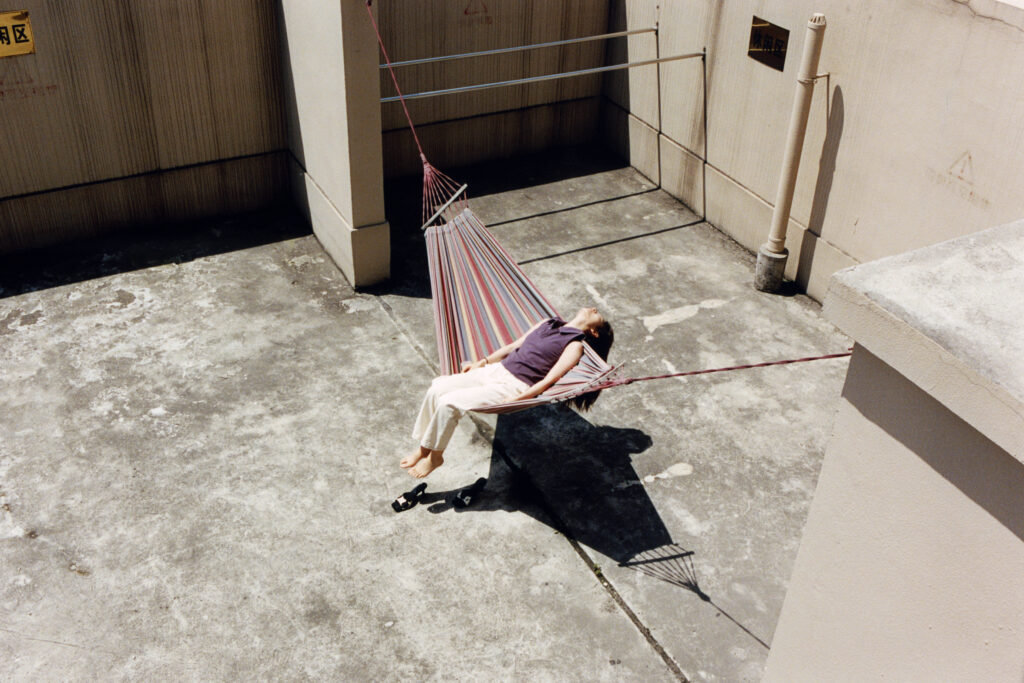
“Everyone should be themselves first, and then a daughter, wife, mother, etc. From a young age, we are conditioned to meet the expectations of others and society, and it’s exhausting without even knowing what we are pursuing. In the future, I hope to become more confident, to be a better version of myself, to do what I want without overthinking and to stop being so hard on myself for my past mistakes.”
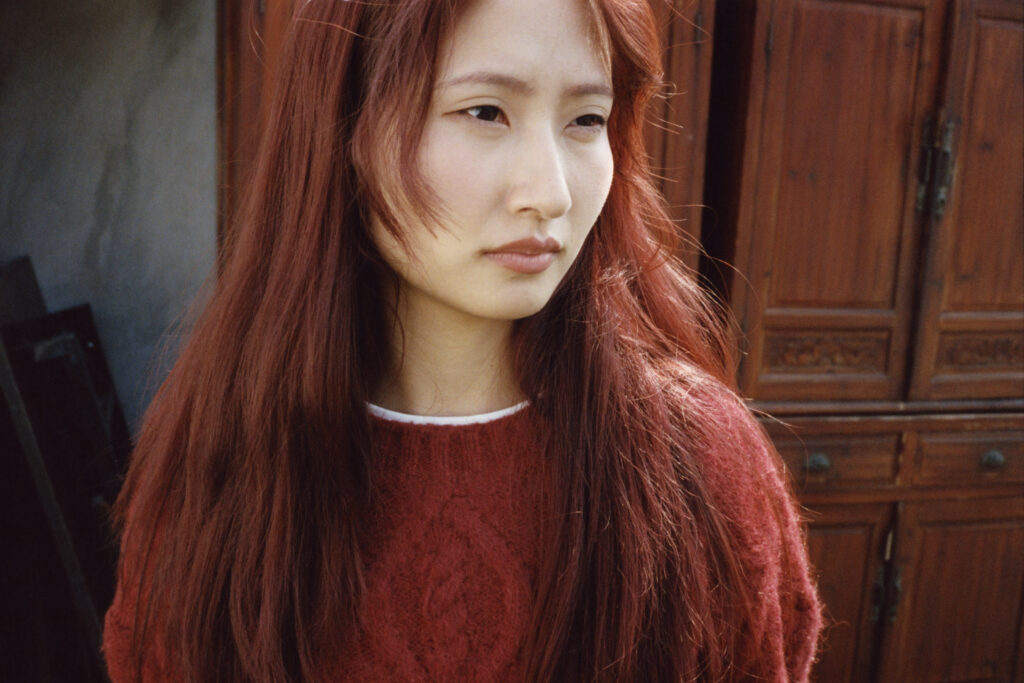
Lulu How has it changed since childhood?
Mengyu Wenzhou has changed so much, but at the same time, it’s exactly the same. The skyline is filled with new skyscrapers, the city has expanded, and even my grandparents’ home will soon be demolished. But there’s something timeless about the way it feels when you’re there. It’s like stepping back in time, even as everything around you modernizes. I think that’s part of what makes going home such an emotional experience — how the city changes, but the dynamics of family and our old ways of being with each other remain the same.
Orange People used to be more opposed to marrying someone from another region, but now it’s more accepted. There’s also the idea that men should be older than women in relationships, but now people are more open to relationships where the woman is older, as long as it’s within a three-year age difference. Any larger difference is still hard for some people to accept. The advantages of staying in China are the convenience of life, having family and friends nearby, and a sense of belonging to your homeland. The downside is the societal norms and expectations placed on women.
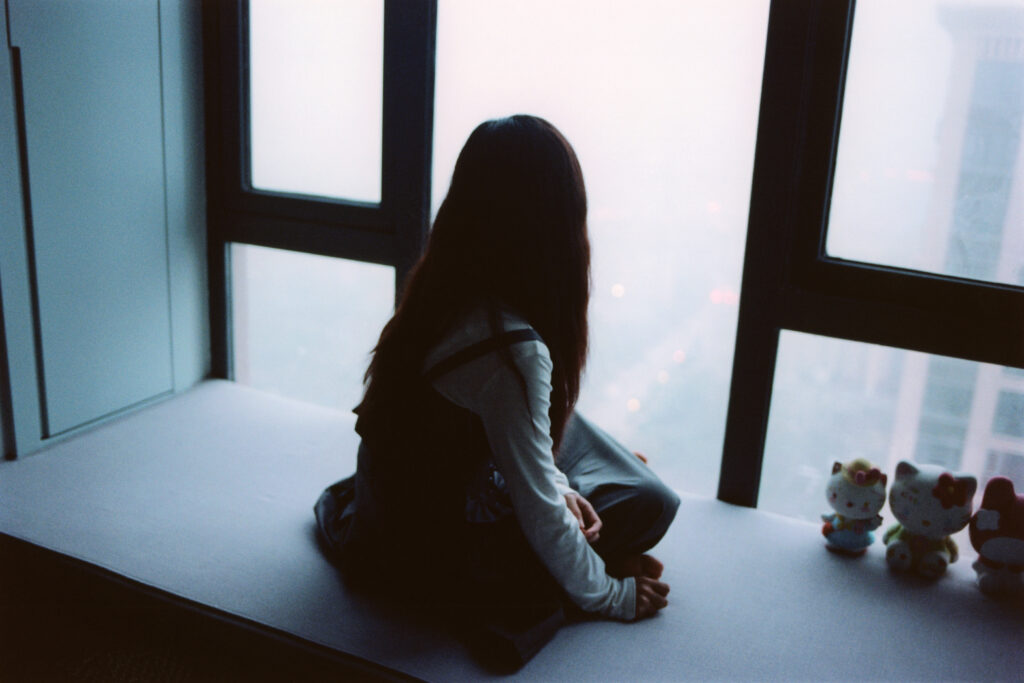
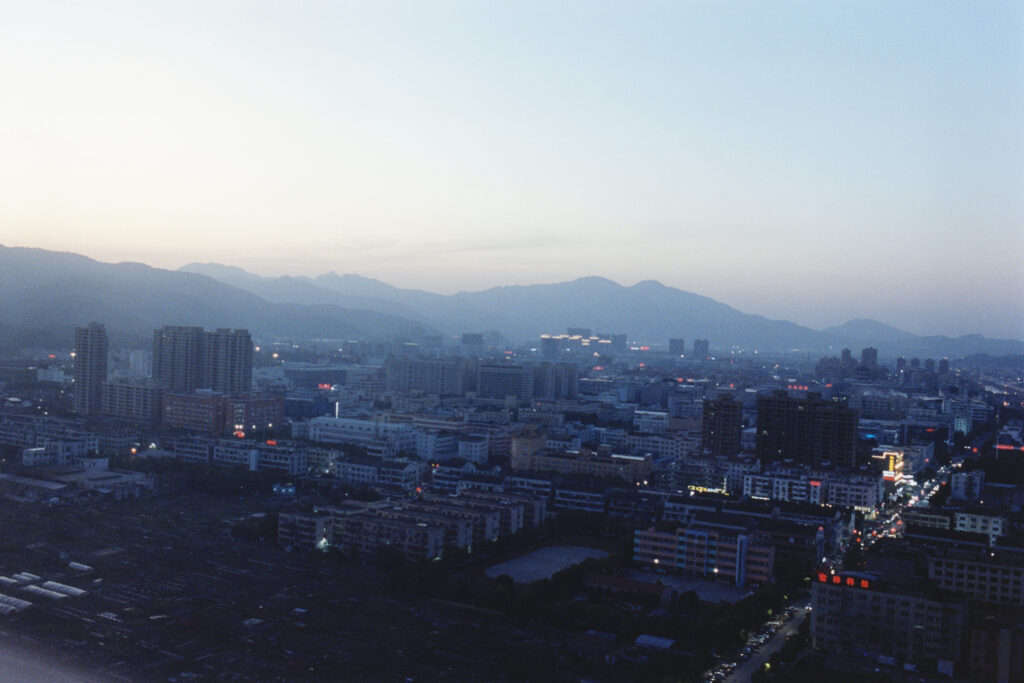
Lulu Can you describe the emotions you felt when you were posing for Mengyu’s photographs?
Orange The world is so big, but I don’t feel like I belong in it. I don’t know what the future holds or where I should go.
Lulu What do you think about these photographs? Is it a collaborative project? Is there anything you hope to express through the images Mengyu takes of you?
Orange Each photo on its own shows a different side of me. If you put all of Mengyu’s photos together, they could tell a story or express something about society and its customs. I’m not trying to convey anything specific, but if I can contribute to changing certain customs, that would be great. However, I feel like my strength is too small to make any significant changes — I can only raise my voice, but I can’t guarantee that anything will change. In the future, I hope girls can be free, confident, and brave, not doubting themselves because of what others say or being hesitant in their actions.
Everyone should be themselves first, and then a daughter, wife, mother, etc. From a young age, we are conditioned to meet the expectations of others and society, and it’s exhausting without even knowing what we are pursuing. In the future, I hope to become more confident, to be a better version of myself, to do what I want without overthinking and to stop being so hard on myself for my past mistakes. I want to be braver and to love myself more. If I have a daughter in the future, I hope she grows up freely and happily, and that she’s confident, brave and poised. This world has its harsh side, but it also has its beauty. While I wouldn’t want her to go through hardships, I’d hope she grows her own shield and sword, to be capable of distinguishing and resisting harm. And I hope I can always stand by her side.

